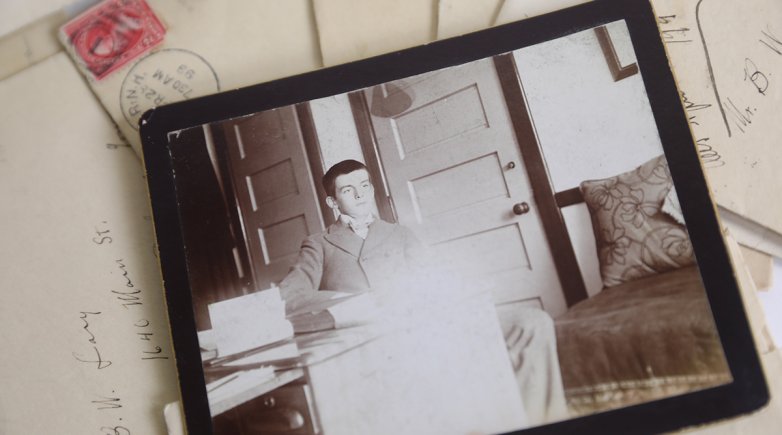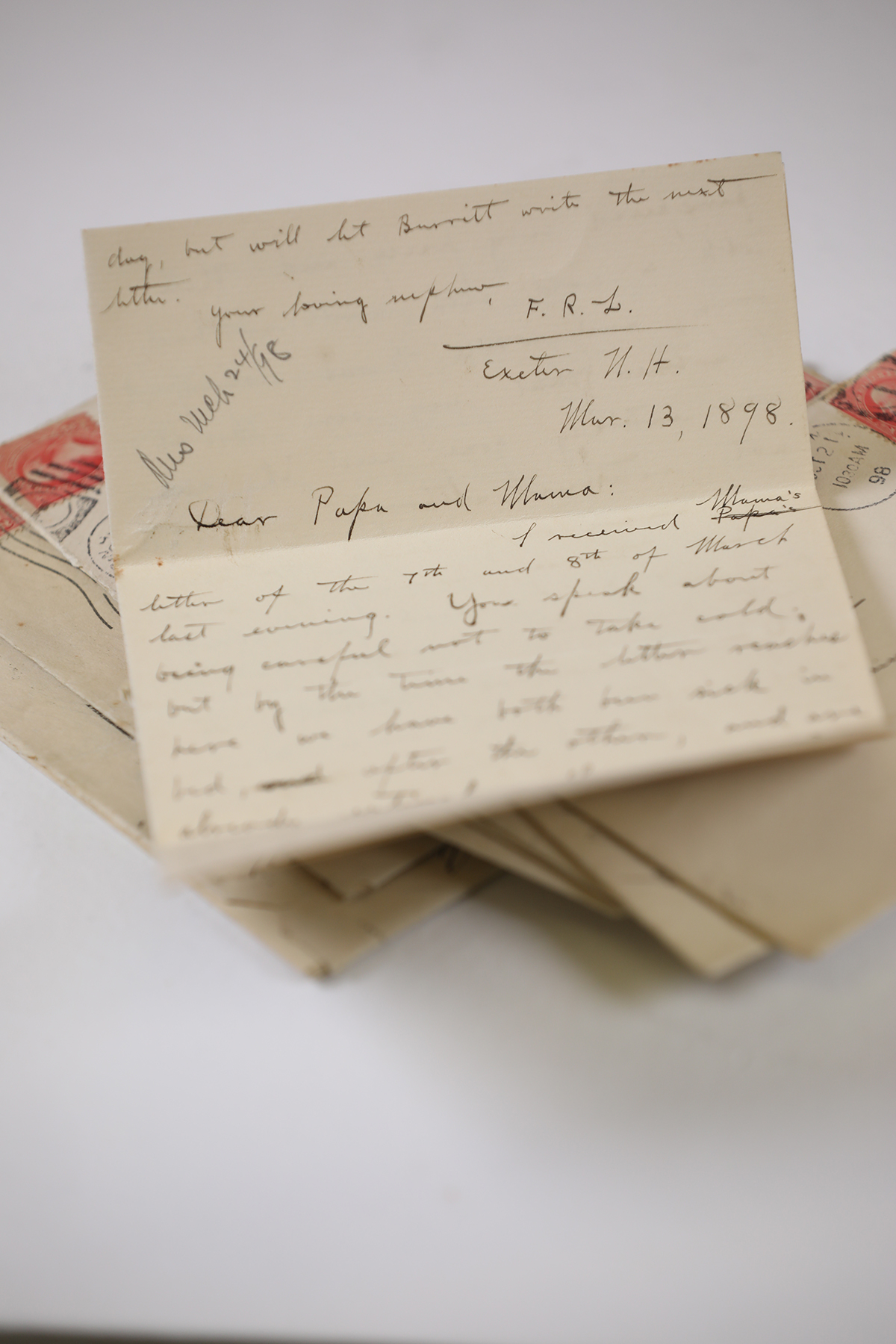Post from the past
Letters home tell of life at Exeter at the turn of the century.
My father, Frank R. Lacy, and his younger brother, Burritt S. Lacy, both entered the Academy as uppers in September 1897 and graduated in the class of 1899. The letters that my father wrote home to his parents in Dubuque, Iowa, and which, to my good fortune, they preserved, paint a picture of life at Exeter in the Principal Harlan P. Amen era that later Exonians may find interesting.
Although the letters I have start only in the spring of 1898, it appears from the inscription “in Oct. 1897,” on the back of a picture of Burritt sitting at a desk in 11 Peabody Hall, that the Lacy brothers lived in Peabody throughout their two years at the Academy as two of its first occupants. In fact, the building seems not to have been quite ready for them. In a letter dated October 12, my father reports that he was still sleeping on a “lounge” because bed springs, which the Academy had ordered from Boston, had not yet arrived. Could this have been a belated attempt to adjust the school’s bed sizes to accommodate the 6-foot-6 Burritt and other oversized boys present or to come? In other respects, the brothers took the furnishing of their room into their own hands. My father writes enthusiastically about a Morris chair that they bought for $10. Their mother had sent them andirons for the fire-place, and they had purchased a screen and soapstone to complete the equipment necessary for its safe and efficient use.
The Academy apparently did not yet have dining halls, and Frank and Burritt took all their meals at Mrs. Read’s boarding house. The price was right. My father’s letter of June 20, 1898, thanking his father for a draft of $40, indicates that part of the money would be spent on paying his and Burritt’s bills of $9 each for board from June 22 to July 3. The Lacy boys were expected by their father to keep meticulous records of every penny they spent while at Exeter. I turned my father’s account book over to the Academy’s archivist some years ago. It would also appear that there was not yet an infirmary. In May 1899, Burritt, along with a number of other boys, came down with German measles. He simply stayed in his bed in his room, and Frank “had the doctor come and see him.” To cope with the constant threat of catching cold, Frank, at the beginning of his senior year, sent away for a half dozen bottles of cod liver oil, which, he assured his parents, he took regularly.

 They often wrote of academics as well. The letters include a “Report of Proficiency, Faithfulness and Attendance of F. R. Lacy of the Upper Middle Class for the Term ending June 21, 1898,” which, I believe, gives a full listing of the curriculum of the time: Latin, Authors and Composition; Greek, Authors and Composition; Mathematics; French; German; Physics; Chemistry; History, Ancient and Modern; English, Authors and Composition; Declamation; Mechanical Drawing; and Physical Training. In the ancient languages and English, separate grades were given on “Authors” (reading) and “Composition,” which in the case of the ancient languages I take to mean the ability to translate English into good classical Latin or Greek. Declamation consisted of memorizing a set piece and declaiming it before an audience including a faculty judge.
They often wrote of academics as well. The letters include a “Report of Proficiency, Faithfulness and Attendance of F. R. Lacy of the Upper Middle Class for the Term ending June 21, 1898,” which, I believe, gives a full listing of the curriculum of the time: Latin, Authors and Composition; Greek, Authors and Composition; Mathematics; French; German; Physics; Chemistry; History, Ancient and Modern; English, Authors and Composition; Declamation; Mechanical Drawing; and Physical Training. In the ancient languages and English, separate grades were given on “Authors” (reading) and “Composition,” which in the case of the ancient languages I take to mean the ability to translate English into good classical Latin or Greek. Declamation consisted of memorizing a set piece and declaiming it before an audience including a faculty judge.